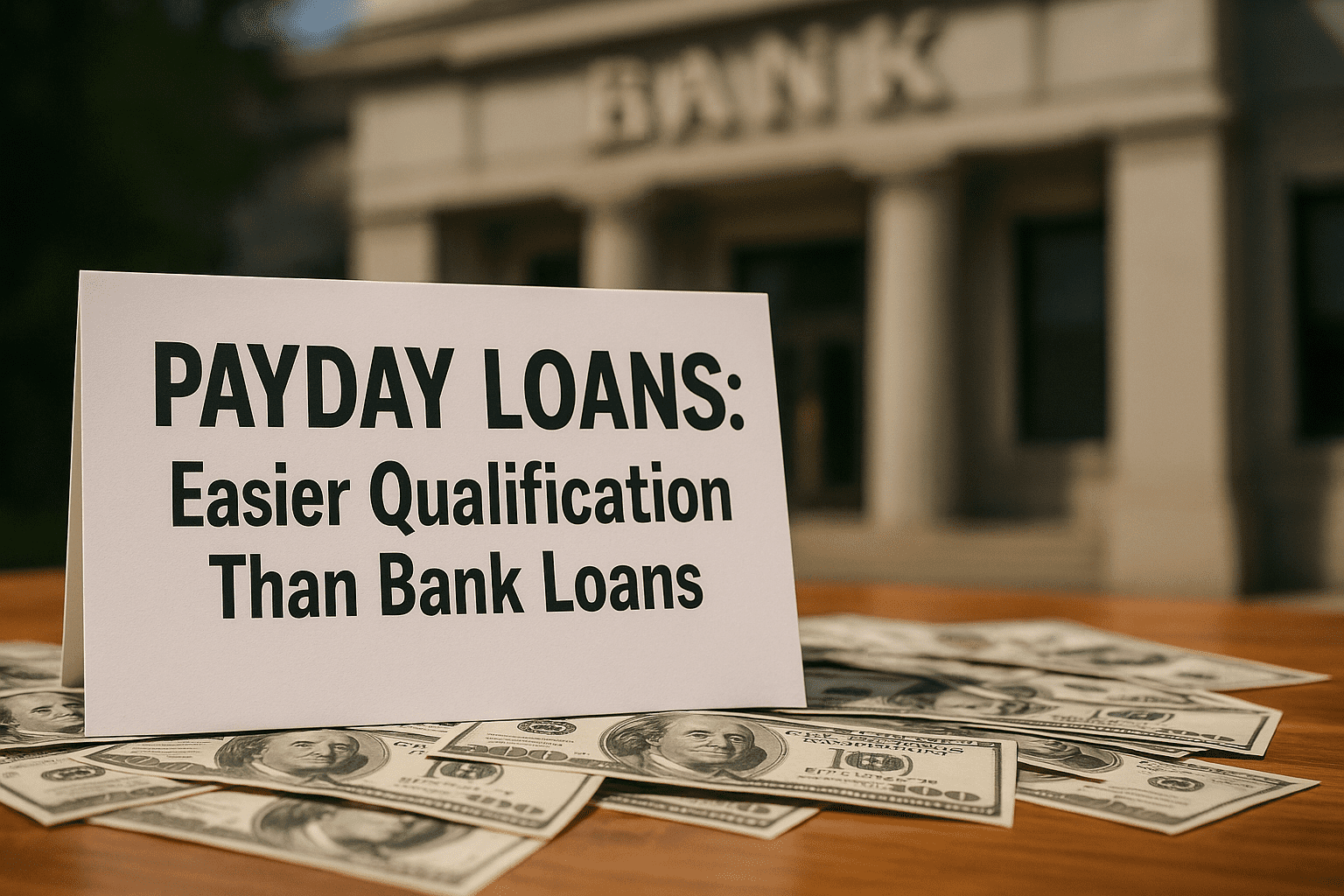
Why Are Payday Loans So Much Easier to Qualify for Than Traditional Bank Loans?
Payday loans spark lively debate among borrowers and financial experts. With a target audience seeking rapid cash for emergencies, these loans sidestep the rigorous steps that traditional bank loans impose. This article delves into why payday loans offer an easier qualification process without compromising on real risks.
Understanding the Payday Loan Niche
Payday lenders serve those facing financial emergencies or temporary cash gaps. They work with small sums meant for short-term use. Their business model emphasizes speed and accessibility above long-term stability, and this focus shapes their streamlined qualification criteria.
Simplified Approval Processes
Minimal Document Requirements
Payday loans only demand proof of income, a valid checking account, and identification. Few verifications, no deep credit score checks, and minimal paperwork make them accessible even to those with past financial blips.
Efficient, Computerized Decisions
Automation drives payday lending. Algorithms process applications quickly without lengthy human reviews, reducing paperwork and speeding up the decision-making process.
Focused Purpose and Loan Size
Unlike traditional bank loans tailored to long-term financial projects, payday loans cover urgent needs. They’re designed to bridge a gap until the next paycheck, meaning only short-term capability is considered.
High-Risk, High-Reward Interest Rates
Payday lenders assume higher risks by working with borrowers who have little or no collateral and weaker credit profiles. They offset this risk with elevated fees and interest rates, a structure that avoids strict qualification criteria.
Regulatory Environment Impact
Some states and regions regulate payday loans differently from traditional lending. These laws allow looser credit checks and faster processes, reflecting the short-term, high-fee nature of payday loans.
Speed of Service
Payday loans excel when urgency matters. The quick turnaround appeals to borrowers needing immediate cash. Speed trumps rigorous documentation processes, leading to faster cash disbursement in emergencies.
Comparing Traditional Bank Loans
Traditional bank loans involve comprehensive credit examinations, collateral requirements, and extensive income verifications. These hurdles ensure long-term financial reliability but also narrow the applicant pool significantly.
Banks prioritize loans that support large investments, home purchases, or business expansions. Their thorough investigations protect large sums of money over long periods. Payday loans operate on a completely different paradigm.
Real-World Data and Expert Perspectives
Experts from Investopedia and NerdWallet detail that the easier qualification for payday loans stems from their purpose. Short-term, small-dollar demands let lenders appoint different evaluation criteria than banks.
Research shows that while payday loans provide swift financial relief, their high fees make them costly over time. Consumers with urgent needs and limited options understand these trade-offs all too well.
Risks and Considerations for Borrowers
Even though payday loans offer easier access, borrowers must weigh the risks. The very simplicity that brings speed also translates to higher interest and fees. Reviewing repayment terms prevents unexpected costs.
It pays to check overall financial health when choosing a loan product. An informed decision minimizes long-term financial strain, regardless of the simplicity in qualification.
Navigating Your Financial Options
Understanding why payday loans are so much easier to qualify for than traditional bank loans helps borrowers evaluate alternatives. Research, caution, and planning form the triad of sound financial decision-making.
When swift money meets accessible lending practices, payday loans offer a solution that conventional bank loans cannot match. Yet, higher costs remain a challenge that every borrower must consider.
Conclusion
Payday loans embody the trade-off between speed and cost. Their minimal requirements and quick approval serve a niche market seeking emergency cash. However, the higher fees and risks highlight the need for caution. Balancing access, cost, and long-term financial health can empower borrowers to make choices that best support their needs.
Frequently Asked Questions
- What makes payday loan approvals easier?They require minimal documents, focus on near-term income, and use fast, automated checks without in-depth credit reviews.
- How do payday loans differ from traditional bank loans?Payday loans target short-term cash emergencies with higher fees, while bank loans support long-term projects with comprehensive checks.
- Are higher interest rates the only downside?Besides higher fees, the short repayment periods and risk of cycle debt are potential downsides.
- Can someone with poor credit qualify for a payday loan?Yes, as the approval process focuses on income and a valid checking account rather than comprehensive credit histories.
- What should borrowers consider before taking a payday loan?Evaluate the costs, repayment terms, and alternative options to ensure the loan addresses an urgent need without long-term financial harm.
By exploring why payday loans are so much easier to qualify for than traditional bank loans, borrowers gain clear insights into their financial options, risks, and benefits. Always assess your personal situation before choosing a lending product.
Sources:


